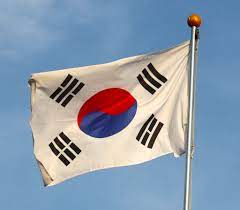Korea’s family-owned conglomerates have enjoyed their privileges for decades. That may be set to end. Lee Jae-Young was halfway through a five-year jail sentence for fraud, embezzlement and bribing Korea’s then-president when he was granted a special presidential pardon in August 2022.
Lee, heir to the multi-billion dollar Samsung corporation and a former chief executive, was jailed in 2018 for offences including embezzling company funds to buy a USD 800,000 horse for the daughter of a friend of the then-president Park Geun-Hye.
The government justified the decision by claiming that Korea’s most significant company needed him back at the helm to boost Samsung’s flagging performance. He was duly appointed not long after his release from jail.
Known as the chaebol, these family-owned conglomerates, which include Samsung, Hyundai and LG Group, powered Korea’s surging economy between 1961 and 1997 and continue to dominate Korea’s domestic economy.
However, public sentiment toward the chaebol (a group of massive, mostly family-run business conglomerates) is ambiguous: while there is pride in their economic success, there is also widespread animosity toward them.
While the middle classes seek to place their highly educated children in the chaebol, they view them as corrupt, thwarting social justice, while many family owners behave as if they are above the law. This ambiguity extends to the government.In the past two decades, successive governments have sought to limit chaebol dominance.Targeting the wealthiest families, Korea levies some of the world’s heaviest estate taxes, as high as 65 percent, when inherited assets belong to a family with a controlling firm share.
The Korea Corporate Governance Improvement (KCGI) Fund and the National Pension Service are building up equity stakes in chaebol firms.They play an active role in defending the interests of minority shareholders and opposing self-serving decisions by family majority owners.
Yet governments broadly protect and enable the more successful business groups. Commuting prison sentences is commonplace for the family members of Korea’s major business groups.
Concentrated ownership of conglomerates creates tension in mid-sized industrial economies such as Korea. There are advantages to having powerful large-scale businesses that can compete successfully in international markets.Domestically, the chaebol appear to have a dangerous dominance. Yet Korea has only one representative (Samsung Electronics) in the World Investment Report’s Top 100 non-financial multinational enterprises (China has 10 and Japan nine).The government’s simultaneous support and constraint of chaebol looks to have the balance right.

















